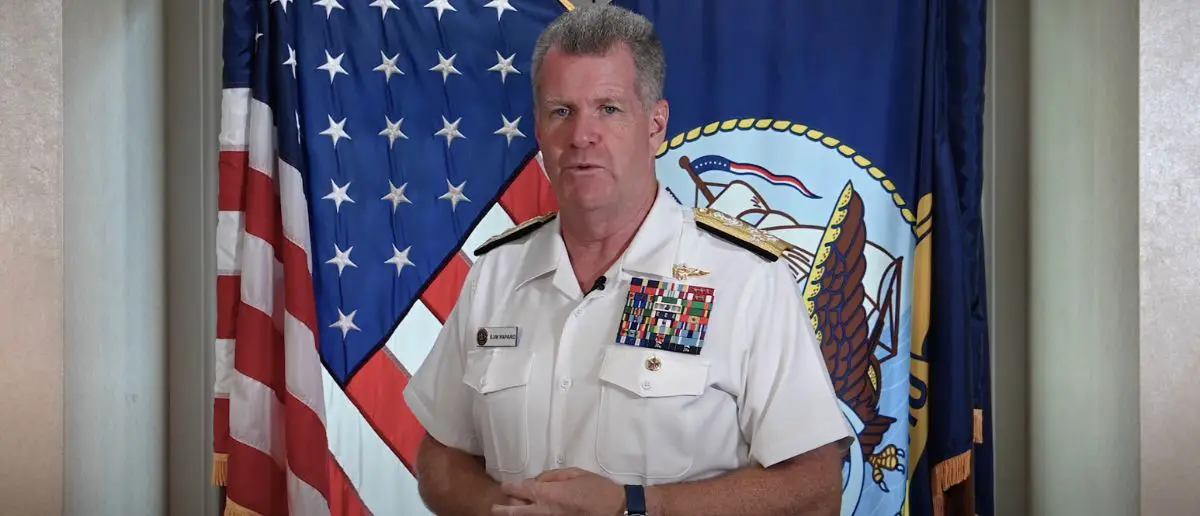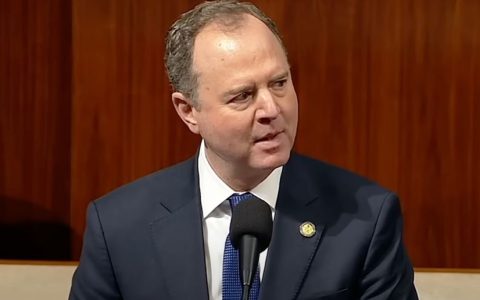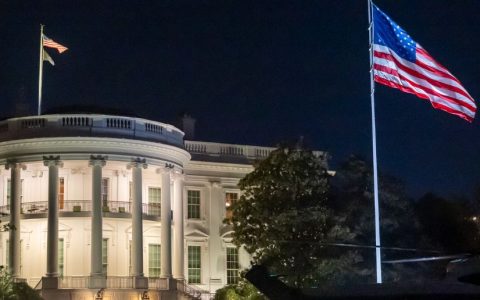
Joe Biden’s handling of the military has been a disaster. Now the consequences have arrived.
Because a U.S. Military General has gone rogue and the White House is in a frenzy.
There’s been concerns for months and years now that China would invade Taiwan as the Chinese Communist regime has been signaling that they are more and more interested in taking over Taiwan as every day passes. With China cozying up with Russia over the past two years as well, the thought of China invading Taiwan has become extremely concerning.
China has significantly increased pressure on Taiwan, stoking fears that tensions could erupt into outright conflict.
Attention has focused on the threat of Chinese invasion, but @chinapowercsis maps out scenarios likelier than invasion in the near term: https://t.co/RHSKKjXtOu pic.twitter.com/pzmpXbWd0k
— CSIS (@CSIS) June 10, 2024
The Biden administration’s response to the rhetoric from the Chinese Communist government has been confusing to say the least. One moment the Biden administration will say that they are fully behind Taiwan and will be quick to defend the Taiwanese with the full force of the U.S. military, and then the next moment they give mixed signals that they might not actually do anything at all.
Obviously with Americans being more fatigued than ever with proxy wars popping up left and right, it’s understandable that any White House administration would want to be careful in its decision on how to approach this issue. But flip-flopping has been far too common for the Biden administration and it’s simply a bad look.
However, recently a top U.S. military general made shocking comments that make it sound like the U.S. will be prepared to wage a full-on war against China should the Chinese government invade Taiwan.
U.S. Naval Commander Outlines Harsh Response to Potential Chinese Invasion of Taiwan
In a recent interview with The Washington Post, Navy Admiral Samuel Paparo, the new chief of the U.S. Indo-Pacific Command (INDOPACOM), described a “hellscape” scenario awaiting China if it attempts to invade Taiwan. Despite the U.S. policy of “strategic ambiguity” regarding Taiwan’s defense, Paparo provided insight into a detailed plan aimed at deterring China through severe consequences.
China views Taiwan as a breakaway province that must be reunified with the mainland, and has criticized international recognition of Taiwan’s independence. President Xi Jinping has instructed the Chinese military to be prepared for a potential invasion of Taiwan by 2027. In response, Paparo emphasized the U.S. military’s readiness to counter such a move, highlighting the dire repercussions for Beijing.
“China wants to offer the world a short, sharp war so that it is a fait accompli before the world can get their act together,” Paparo explained. “My job is to ensure that between now and 2027 and beyond, the U.S. military and the allies are capable of prevailing.”
The U.S. strategy, referred to as “Hellscape,” involves deploying thousands of unmanned surface ships, aerial drones, and submarines to encircle Taiwan at the onset of any Chinese movement toward the island. This tactic aims to delay Chinese progress and provide the U.S., Taiwan, and regional allies the necessary time to mount a larger, coordinated defense.
“I want to turn the Taiwan Strait into an unmanned hellscape using a number of classified capabilities,” Paparo stated. “So that I can make their lives utterly miserable for a month, which buys me the time for the rest of everything.”
While Paparo refrained from disclosing specific details of the strategy, he assured that it is “real and deliverable.” The Department of Defense, in a move to bolster these defensive capabilities, announced in March an allocation of over $1 billion to the Replicator program. This initiative aims to create a network of unmanned aerial drones and surface ships, drawing lessons from the use of drone technology in the Russia-Ukraine conflict.
Additionally, the U.S. has significantly increased financial support for Taiwan and the broader Indo-Pacific region, with $8 billion in aid approved in April for American allies.
Despite these efforts, there are concerns about the timely execution of the Replicator program and the delivery of military equipment to Taiwan, which has faced delays. Meanwhile, China continues to enhance its military capabilities, including the development of hypersonic missiles and expanding its cyberwarfare operations, posing a substantial threat to U.S. infrastructure.
Paparo noted that China’s military budget is likely around $700 billion annually, significantly higher than publicly reported figures. In comparison, the U.S. National Defense Authorization Act (NDAA) has allocated approximately $840 billion for defense spending in the fiscal year 2024.
He further elaborated on China’s strategic ambitions, describing them as “revanchist, revisionist and expansionist.” Paparo expressed skepticism about Beijing’s willingness to consider alternative paths, stating that the region faces a critical choice between submission and militarization.
“The region has got two choices. The first is that they can submit, and as an end result give up some of their freedoms…or they can arm to the teeth,” he remarked. “Both cases have direct implications to the security, the freedom and the well-being of the citizens of the United States of America.”
Stay tuned to the DC Daily Journal.





